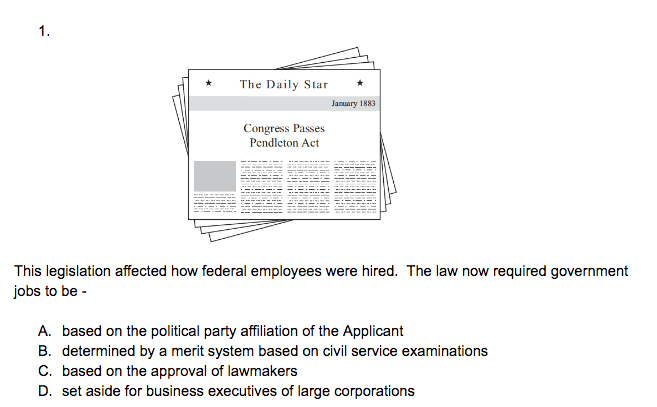
B. determined by a merit system based on civil service examinations
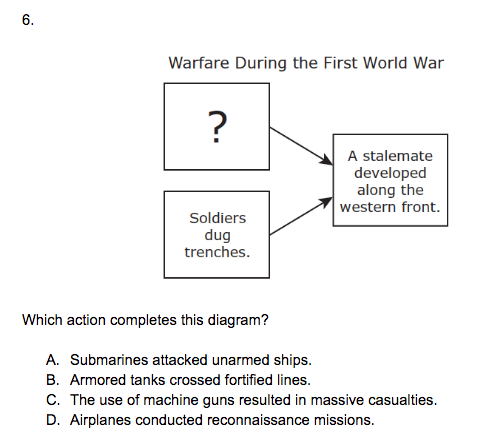
C. The use of machine guns resulted in massive casualties.
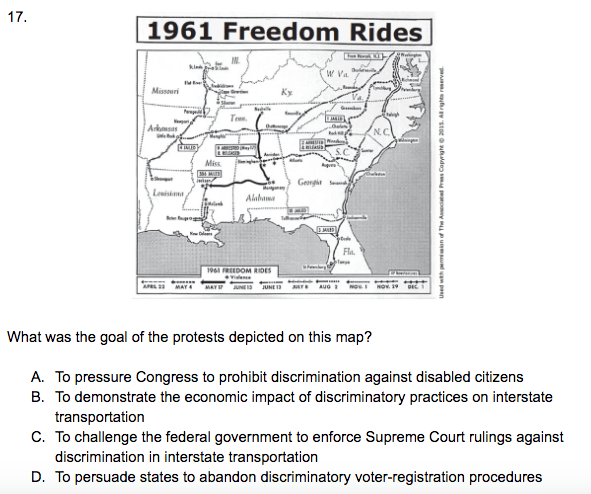
C. To challenge the federal government to enforce Supreme Court rulings against discrimination in interstate transportation
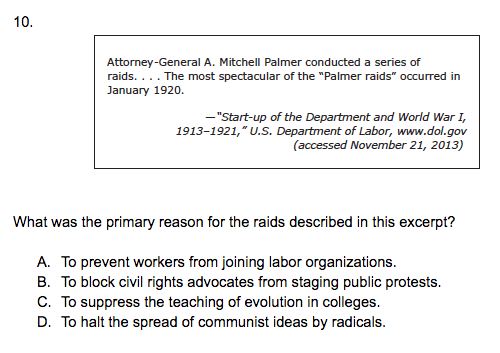
D. To halt the spread of communist ideas by radicals.
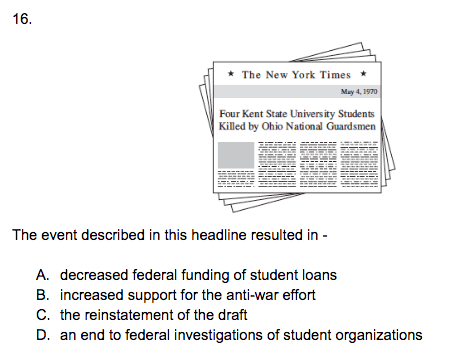
B. increased support for the anti-war effort
3. During the late nineteenth century, many Irish immigrants were discriminated against for being-
A. opposed to machine politics
B. loyal to the United Kingdom
C. conscientious objectors
D. Roman Catholics
D. Roman Catholics
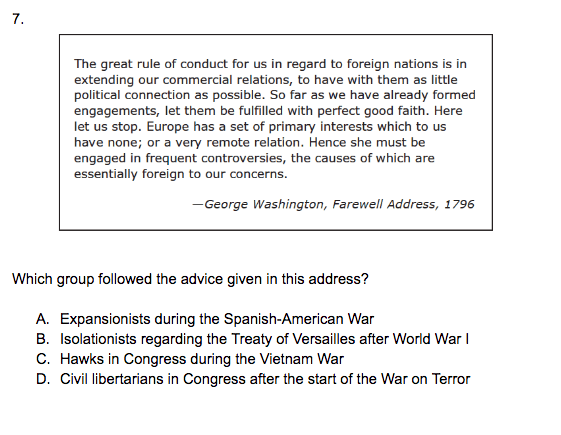
B. Isolationists regarding the Treaty of Versailles after World War I

C. The passage of the Voting Rights Act of 1965
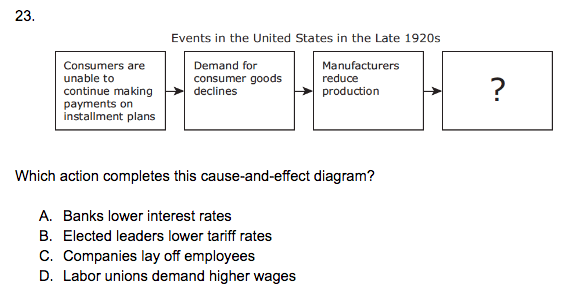
C. Companies lay off employees
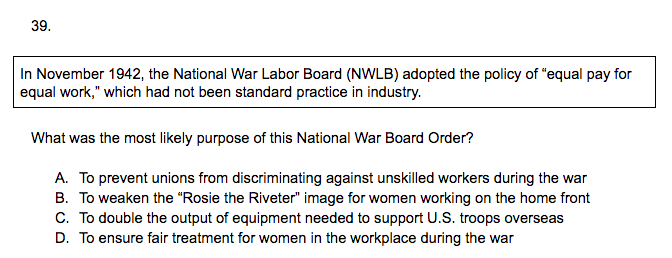
D. To ensure fair treatment for women in the workplace during the war
9. Which groups were most influential in passing the Pure and Food and Drug Act?
A. Southern farmers and clergy members
B. Factory owners and bankers
C. Muckrakers and women’s organizations
D. College students and immigrants
C. Muckrakers and women’s organizations
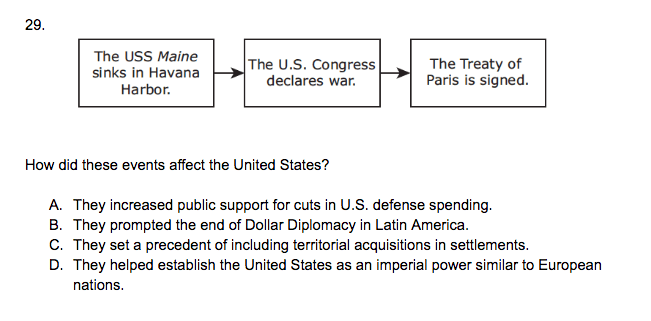
D. They helped establish the United States as an imperial power similar to European nations.
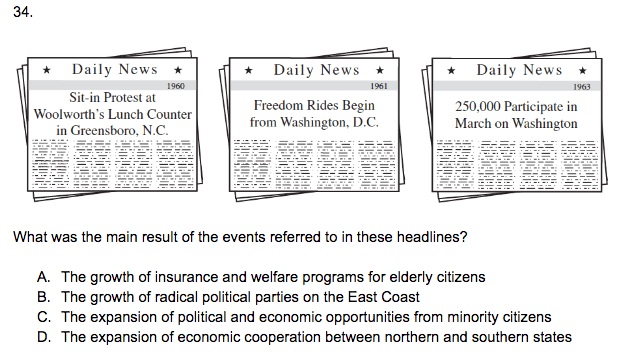
C. The expansion of political and economic opportunities from minority citizens
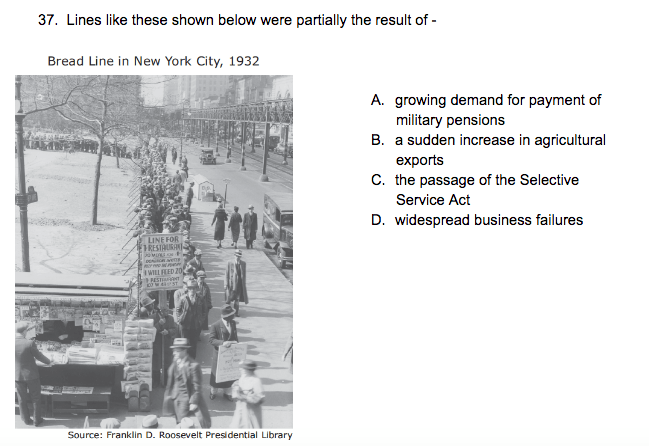
D. widespread business failures

A. United States to increase spending on technology and weapons to compete with the Soviet Union
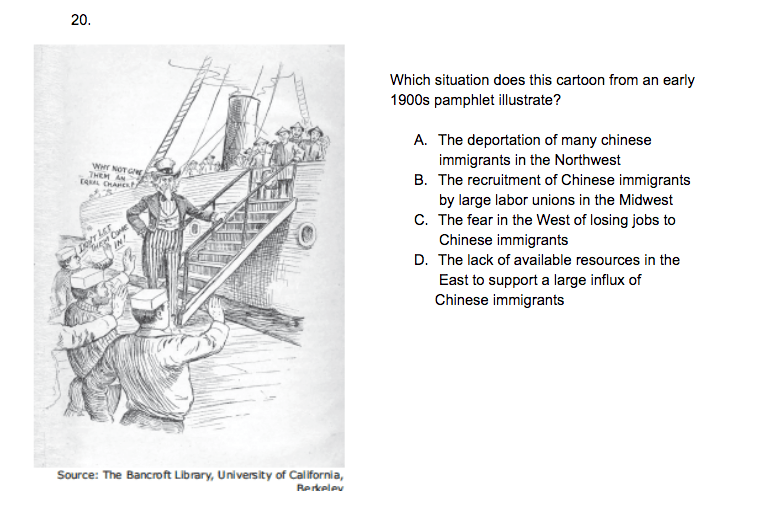
C. The fear in the West of losing jobs to Chinese immigrants

C. The United States gained direct access to additional natural resources and overseas markets.
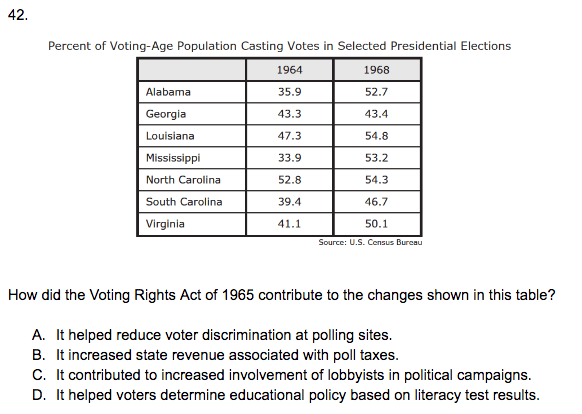
A. It helped reduce voter discrimination at polling sites.

B. The federal government took on new roles.
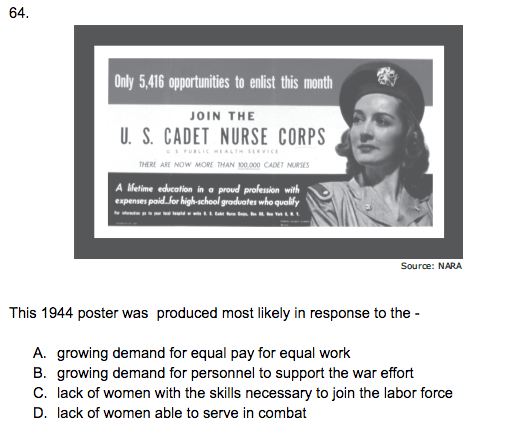
B. growing demand for personnel to support the war effort
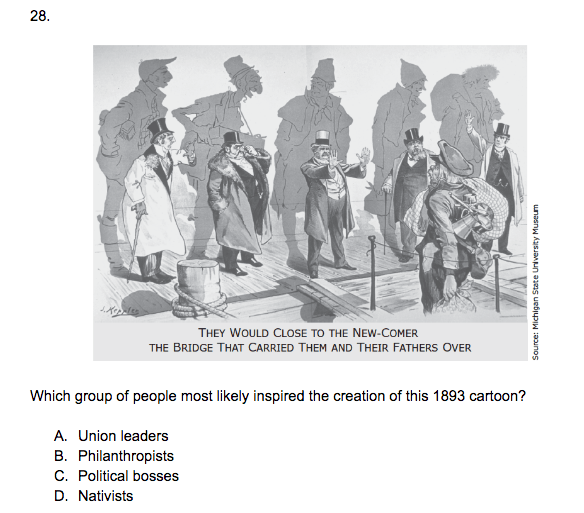
D. Nativists
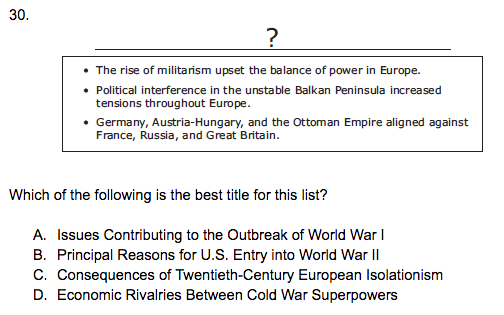
A. Issues Contributing to the Outbreak of World War I

C. By providing a judicial basis for achieving equality in other areas
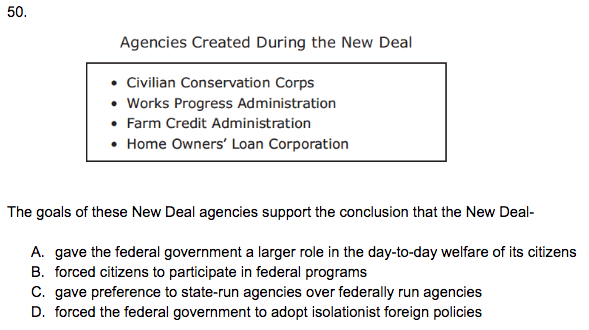
A. gave the federal government a larger role in the day-to-day welfare of its citizens

D. North Korea’s invasion of South Korea